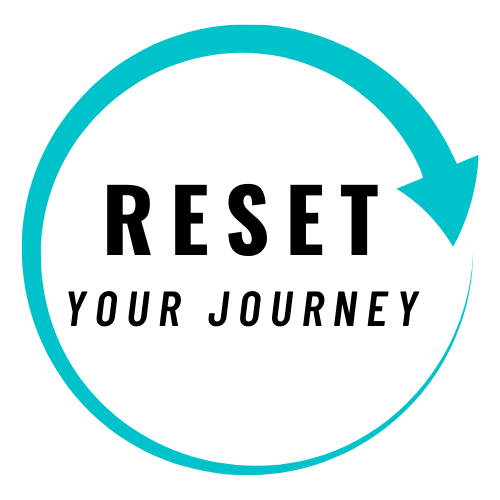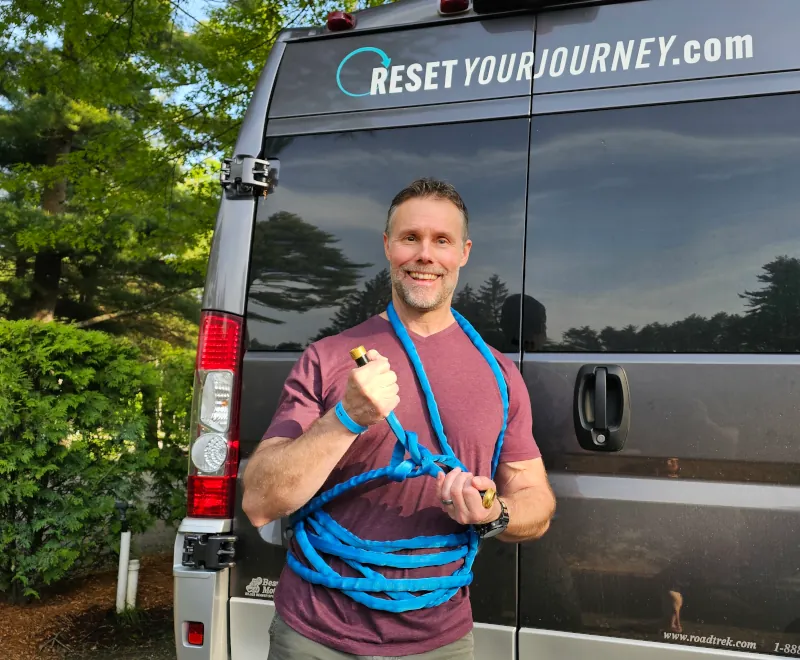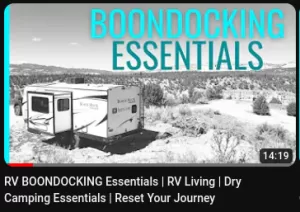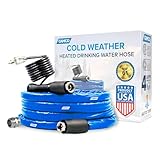Last Updated on 05/25/2024 by Glynn Willard
Best Drinking Water Hose For RV
The best hose for your recreational vehicle is based on your camping style and storage space in your RV.
No doubt, you have researched several different brands and styles of drinking water hoses for RV use.
But before you go down that “research rabbit hole,” let’s define the criteria I just mentioned to eliminate wasted time and money.
We spent over two years full-time RVing (now part-time) and went through several different hoses.
We’ve narrowed down the best choice for a dedicated drinking water hose for each scenario.
Let the information flow like water so you can make an informed decision!
Sorry, I’m a Dad and can’t help it.
Can You Use A Regular Garden Hose To Fill RV Water?

Before addressing the different scenarios, let’s get a common question out f the way.
Garden hoses are not manufactured as a safe RV hose to fill your fresh water tank.
Will using a standard garden hose cause irreparable harm overnight?
No, but avoid using it on a consistent basis since it can release harmful chemicals like BPA, lead and phthalates (esters used in plastic production).
Maintain your peace of mind and save your spare garden hose with toxic materials for cleaning out the gray or black tank or washing your RV.
Your Camping Style And Storage Capacity
If you boondock most of the time, that means you will be using your fresh water hose to fill your freshwater tank at random locations.
In this circumstance, it’s wise to equip yourself with a longer hose that is easy to maneuver.
Many of the locations we found had a spigot that was located up to 50′ away from parking.
If you’re sporting a large RV, that’s difficult to maneuver into tight spaces close to the spigot, a longer hose is crucial.
Of course this requires enough storage for the longer hose length.
There’s a fix for this if you have minimal storage like we currently do in a campervan. Continue reading.
On the flip side, if you always stay in campgrounds, chances are the spigot will always be close to your RV.
To be safe, I wouldn’t go any shorter than 25′ for a shorter hose for the RV.
Top Picks For Potable Water Hose For You
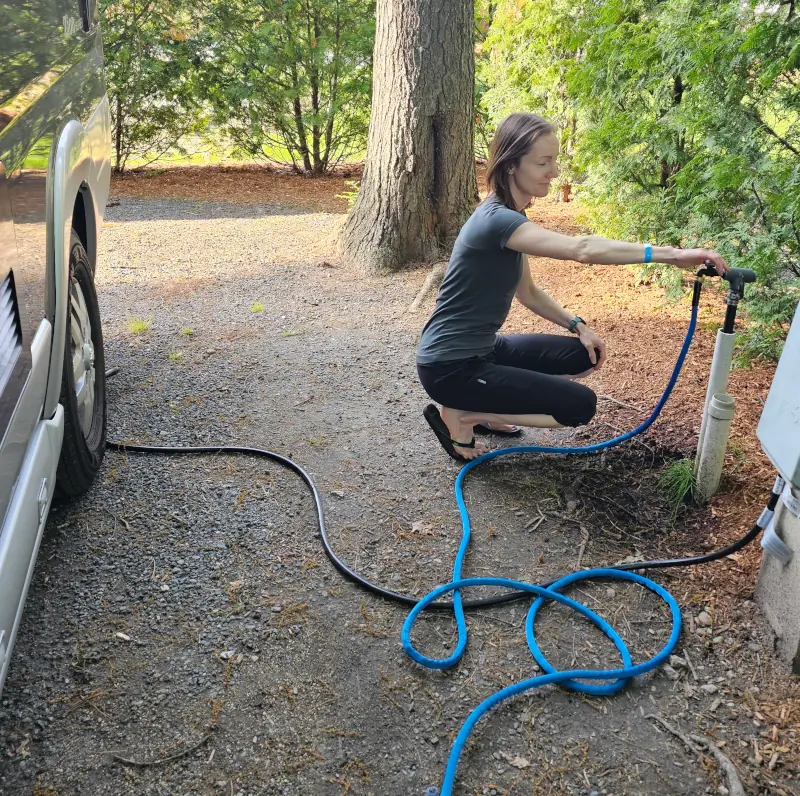
We have experience with most of the listed hoses from our full and part-time RV living.
The rest are based on specs and what I look for when shopping for a hose for potable water use.
- Teknor Apex Zero-G
This has become my go-to hose.Honestly, it’s because it’s so easy to roll up and stores in the tight confines of our campervan.
We use it frequently since we only have a 37 gallon freshwater tank.
Read that as frequent stops to fill our water tank.
- Teknor Apex NeverKink, Boat and Camper, Drinking Water Safe Hose
Teknor Apex makes a solid and dependable drinking water hose for RVs.It feels like a normal hose, but kinks less frequently.
It’s also strong, so will likely not burst anytime soon.
- Camco EvoFlex 50-Ft Water Hose
This hose is easier to roll up and very reliable, but it kinks on occasion.It’s been relegated as our backup hose since it’s so reliable.
The Most Reliable Drinking Water Hose
If you have the space and will use the hose frequently, I believe the Teknor Apex Neverkink is a good hose if you stay in one camping spot for a long time.
Again, it feels like a normal hose, but is less likely to kink. That’s not to say a kink is impossible.
An important factor often overlooked is inconsistent water pressure at campgrounds.
If the pressure behind the water flow through the hose is abnormally high and you forget a pressure regulator, this hose is less likely to burst than the Zero-G.
Again, this is perfect for campers who remain stationary for long periods of time.
We’ve had our Camco TastePURE 50-Ft Premium Water Hose longer than any other freshwater hose and it still functions perfectly.
It’s become the hose that remains connected to our filtered water spigot in our homebase and used to fill the tank prior to departing for our part-time adventures.
If you move frequently or boondock most of the time, it’s a good idea to carry a flexible hose that packs tightly and rolls up quickly.
That’s why I now favor the Zero G as the primary drinking water hose we carry while traveling since it packs tightly into our campervan.
Not Sure What You Need For Your RV?
Heated Water Hose For Cold Weather
Using a true 4-season camper in colder climates and remaining connected to city water requires a heated hose.
It may be less common, but it’s still a practice for some cold climate lovers.
Skimping is not an option and the shorter the hose, the better (for obvious reasons).
Stick with a reputable brand like Camco and you’ll be good to go.
- Camco Heated Water Hose for RV
Try to get away with the shortest option possible.
